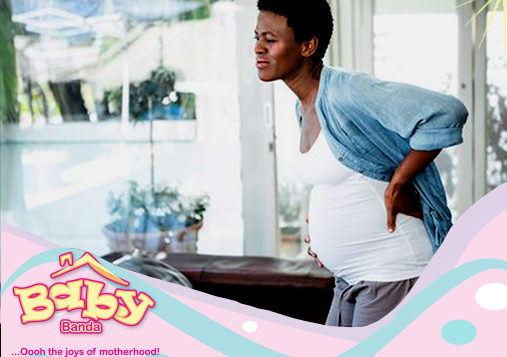It’s common for a pregnant woman to experience pain in her pelvic area as the pregnancy progresses to the end. The baby exerts lots of pressure on the pelvic bone, and sometimes the pain might interfere with your day to day activities.
Consequently, it’s crucial for you to know the symptoms to look out for and ways to cope with the pain.

Symptoms of pelvic pain
- You find it difficult to walk from one place to another.
- You feel pain when climbing stairs.
- You experience some pain when you part your legs. E.g., when getting in and out of a car.
- You feel like there is grinding and clicking in your pelvis.
- Painful hip movements, especially when you turn in bed
- You experience pain during sexual intercourse.
- Pain in the space between your anus and vagina
Causes of Pelvic Pain
As your due date draws near, your baby begins to move towards the birth canal. So, the head presses your bladder, pelvis, and hips. That pressure can cause mild or severe pelvic girdle pain (PGP)
How to cope with pelvic pain
- Do exercises that will strengthen your pelvis, hips, and the back. Instead of waiting to start when then you are in pain, be active from the first trimester. An activity like swimming is excellent for pregnant ladies. However, consult your health care provider first if you have a difficult pregnancy.
- Sit down when dressing up to avoid applying pressure on one leg.
- Make sure you get sufficient rest.
- Bath with warm water.
- Feel free to ask your loved ones for help with housework.
- Wear shoes that are padded, ensure they are comfortable.
- When getting out of your bed or car, put your knees together and climb down slowly.
- Some activities like standing and walking for a long time will worsen the pain.
- Make sure that you sleep on the right mattress and in a comfortable sleeping position. For instance, lie on the side with the Baby Banda L pillow that will give you full body support.
- Get down on all fours during sex. If that aggravates the pain, try other positions that are safe for pregnant women.
- Go for physiotherapy or get a massage suitable for pregnancy.
- When going up the stairs, take one at a time.
- You can also talk to your doctor about risk-free pain killers.
Who is likely to get pelvic pain during pregnancy?
Some women have a higher risk of getting PGP than others. These are:
- Women with jobs that require physical energy like those who work at construction sites.
- Those with a history of back and pelvis pain
- Ladies that had the condition in previous pregnancies.
- Women struggling with obesity and being overweight.
- Those carrying twins and other multiples.
Conclusion
If you experience some pain in your pelvis when pregnant, kindly consult your doctor immediately. Resist any temptation to go for over the counter pain killers and traditional solutions.













